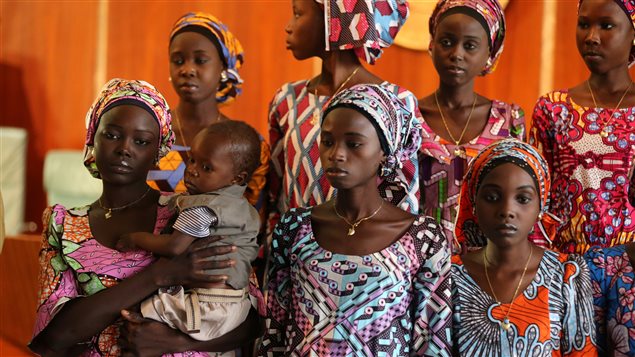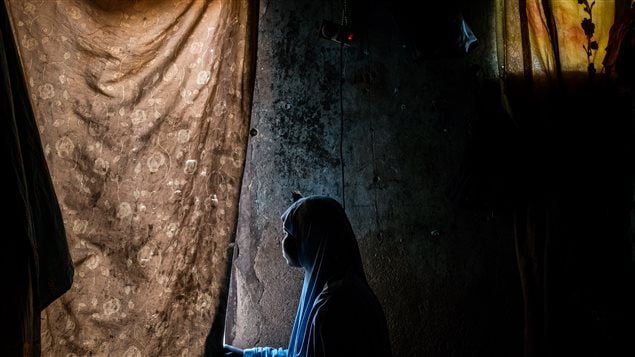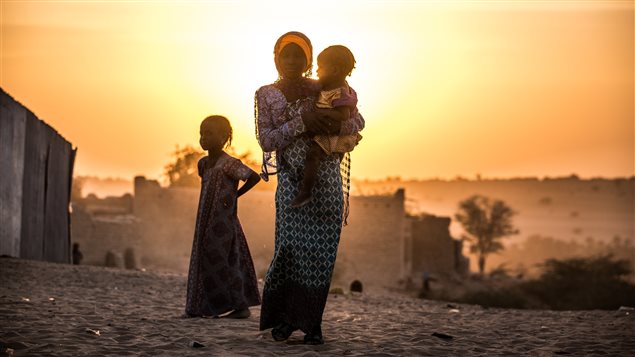The United Nations children’s agency is sounding the alarm over a surge in the number of children used in suicide attacks in the Lake Chad conflict by the militant group Boko Haram.
Just in the first three months of this year, UNICEF recorded 27 cases of children, mostly girls, being used in suicide bomb attacks in northeastern Nigeria, Cameroon, Niger and Chad, according figures released in a new report. That’s almost as many as in all of 2016.
“It is a tragedy really, I don’t think there is any other word that we can use to describe what is happening,” said Thierry Delvigne-Jean, a Canadian who is UNICEF’s chief of communications for West and Central Africa.
(click to listen to the interview with Thierry Delvigne-Jean)
ListenUpward trend
“And unfortunately it’s a tragedy that has been going on for quite a few years now and we’re seeing an upward trend in the use of children to carry out suicide attacks in public places.”
Since 2014, 117 children have been used by the Islamist insurgents to carry out bomb attacks in crowded public spaces. There were four attacks using children in 2014, 56 in 2015 and 30 in 2016, according to the report Silent Shame: Bringing out the voices of children caught in the Lake Chad crisis.
The Boko Haram insurgency is now in its eighth year with little sign of ending, having claimed over 20,000 lives. Its child kidnappings gained global notoriety after the abduction of more than 200 girls from the town of Chibok in Nigeria’s northeast in 2014, three years ago on Friday.

“The Chibok Girls abduction is well-known but the practice is widespread and continues,” said Delvigne-Jean.
Boko Haram specifically targeted girls for use as suicide bombers to take advantage of the fact that girls used to be perceived as less of a threat by security forces, Delvigne-Jean said.
An attack in the northeastern Nigerian town of Madagali, in January saw two women detonate their devices, killing themselves, two babies, and four others.
They had easily passed a vigilante checkpoint because they were carrying infants, according to Nigerian authorities.
Victims, not perpetrators
As a consequence, girls, boys and even infants have been viewed with increasing fear at markets and checkpoints, where they are thought to carry explosives, Delvigne-Jean said.
“The children are victims, they are not perpetrators, and that’s a very important fact to remember,” Delvigne-Jean said. “The children that are associated with Boko Haram have been forced to join, in most cases in dramatic circumstances. They are children that have been snatched away from their families, who have actually seen their families killed in front of them, who’ve seen their siblings killed in front of them. They are children who have seen things that no child should see.”
Thousands of children – boys and girls – have been abducted by Boko Haram in the Lake Chad region, he said.
Boys are used as fighters, cooks and porters to move ammunition and supplies, while girls are typically used in cleaning or as “wives,” Delvigne-Jean said.
“They are being forced into marry and essentially to become sexual slaves,” he said.
Growing suspicion

These children are met with deep suspicion when they return to their communities.
“Authorities and communities are increasingly suspicious of children who have escaped or who’ve been freed from Boko Haram and many of these children are actually stigmatised,” Delvigne-Jean said. “And often [are] victims of reprisals from their own community, especially young women who had been raped in captivity and now have to take care of their children.”
Local authorities also face challenges with children who have been intercepted at checkpoints and taken into administrative custody for questioning and screening, raising concerns about the prolonged periods of custody, Delvigne-Jean said.
In 2016, almost 1,500 children were under administrative custody in the four countries and almost 600 of them are still awaiting release, according to UNICEF., he said.
With files from Reuters







For reasons beyond our control, and for an undetermined period of time, our comment section is now closed. However, our social networks remain open to your contributions.